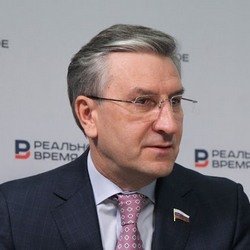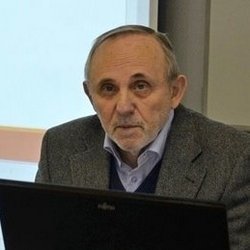Russian Finance Ministry rejects project of AlmA Special Economic Zone in Kama River’s left bank area
Moscow considered that Tatarstan already had enough eight preferential territories
The Russian Ministry of Finance stopped an ambitious Tatarstan project on the republic’s third special economic zone near Almetyevsk — AlmA SEZ: Moscow offered Tatarstan “to consider alternative mechanisms of support for private investors”. However, the experts surveyed by Realnoe Vremya think that there is still some hope for authors of the initiative (Tatneft is the beneficiary of the project) and put an example of tough negotiations of Alabuga and Innopols special economic zones too. Read in Realnoe Vremya’s report about the reasons why AlmA halted, disadvantages of the scheme of support for a business via an SEZ and consequences for the enterprises that planned to become residents of the zone.
“Seven preferential territories are enough”
Russia’s Ministry of Finance didn’t back the project of AlmA SEZ approved by the Tatarstan government as early as in September 2019. It was planned to complete the registration of the zone before the end of 2019, however, the procedure isn’t still over, and according to the Russian ministry’s answer to Realnoe Vremya’s question, this is unlikely.
The Ministry of Finance considered the project of the Russian government’s decree on the creation of AlmA SEZ developed by the Russian Ministry of Economic Development as early as in December 2019. But the Finance Ministry didn’t approve it and offered the Tatarstan government to consider alternative mechanisms. However, the republic kept trying to promote the project.
Obviously, this is why Tatarstan didn’t present alternative options to the Russian Finance Ministry and hoped Russia would change its mind. As Realnoe Vremya found out, they hoped in vain: the Russian ministry insists and refuses to increase the number of preferential zones for businesses in the republic thinking that the amount of such zones is already sufficient.
“Now Tatarstan already has a number of preferential territories — two special economic zones (Innopolis and Alabuga) and five advanced development territories,” Realnoe Vremya was told in the Russian Finance Ministry. “As for the creation of the new AlmA SEZ, the agreement on intentions to become residents of the mentioned economic zone were signed with eight companies. The investment projects presented by them are very profitable, even if the investors aren’t given the status as SEZ residents.”
No encroachment on public money
It was planned to create the republic’s third economic zone on an area of 462 hectares of land of three oil-rich districts of the republic — Almetyevsk, Nizhnekamsk and Leninogorsk. Tatneft PJSC was to be the anchor investor. It was supposed to develop a cluster that would refine petrochemical feedstock to manufacture maleic anhydride at Tatneft’s Minnibay Gas Refinery and other petrochemicals. Private companies as residents of AlmA zone were considered to process maleic anhydride, polypropylene, acrylonitrile and carbon fibre.
AlmA SEZ was planned to be completely private — it wouldn’t need public injections to develop infrastructure unlike Alabuga, for instance, for whose third stage Tatarstan President Rustam Minnikhanov asked the Russian government to allocate around 29bn rubles in summer 2020. During the first stage of construction of AlmA, by 2022, residents’ investments were to be 62bn rubles and 80 billion rubles by the second stage in 2029.
By August 2019, the investment portfolio of the future SEZ was 56 billion. It consisted of five investors’ projects allowing creating 1,300 jobs, according to Tatarstan’s ex-Economy Minister Farid Abdulganiyev.
Realnoe Vremya asked the Tatarstan Ministry of Economy about the reasons why Moscow didn’t want to create another preferential zone in Tatarstan and was interested in development plans of the territory in the absence of big public support (taxes and other concessions make a business registered in a SEZ much more profitable than a “usual” one). The answer to the question will be published when we receive it.
There will also be published a comment of the new SEZ’s potential strategic investor Tatneft PJSC. The company received Realnoe Vremya’s question but hasn’t replied yet.
Hope to continue the dialogue
Nevertheless, Tatarstan isn’t obviously going to give up the plan for the creation of AlmA SEZ, on the contrary, the republic considers the idea of the gas and petrochemical zone promising enough.

Ayrat Farrakhov thinks that the absence of registration “shouldn’t be considered as categorical disagreement”:
“Because in any case, our country will develop if the business activity changes and special conditions for businesses on separate territories are created. Therefore I think that it is necessary to follow the course.”
But he stressed that making such decisions is outside the expertise of the State Duma — it is the power of the government of the Russian Federation.
“Dishonest people solve their problems”
Russia’s ex-Economy Minister, adviser to Rosnano JSC Board Chairman Yakov Urinson has another opinion. He thinks that special economic zones are evil and is against the multiplication of their number.

If in a talk with Realnoe Vremya Ayrat Farrakhov assumed that the loss of a share of public income as a consequence of preferences given to investors as the reason why the project of AlmA SEZ stalled, which is undesirable in today’s complicated economic situation, Yakov Urinson is convinced that these losses of the SEZ aren’t the only downside.
“I think the main disadvantage is that the special economic zones are the area where one can do whatever. They are hard and sometimes impossible to control completely, administer and they create conditions that allow dishonest people to solve their problems,” the former economy minister believes.